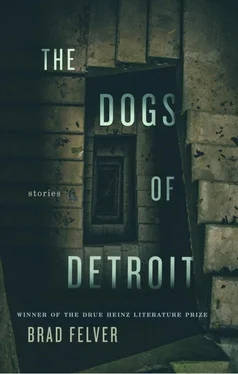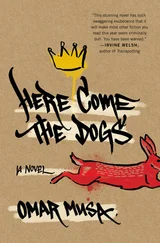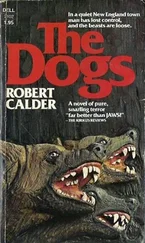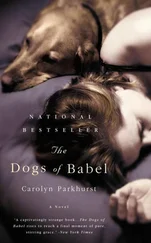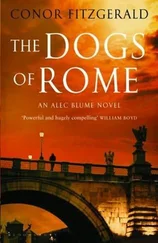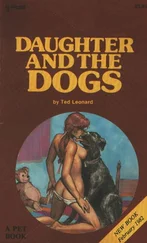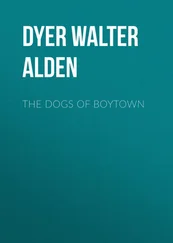And then one day: his mother’s tracks, long and narrow, weight on the outside ridges. Keds. She always wore Keds. She has been gone two months now, disappeared. She was there when Polk went to school, sitting at the kitchen table, sucking on a menthol, gone when he got home. But these are her prints. He knows them. They mix in with the dog prints, as if she has joined them. Perhaps has been hunted by them, perhaps something else altogether.
Eventually , he thinks, I’ll whiten the canvas, leaving only her tracks. Eventually, a pattern will emerge . But with each dog he kills, his palate mutates: joy. The heavy thunk of bullet piercing a ribcage. Eliminating a contagion. A growing pleasure to be found in mindless violence. Carcasses left to rot, to ravage by predators. Always there seem to be more dogs, like a muscle in need of constant stretching.
At school, he sits alone. He is a large boy, the largest in the junior high school, his feet flapping on the concrete hallways as if they were made for an adult but then attached to him instead. The art teacher, Mrs. Roudebush, prods him to rejoin the world. More pictures of mom, Polk? More charcoal? Why not try the acrylics? Some greens and yellows and magentas.
“No, thank you,” he says. His face remains placid, all its topography flattened, grown numb, unable to flex. He refuses to look up, and she soon wanders away to check on other students.
After school, he walks home to their house on the East Side, then through the tunnel of tall grasses, which have swallowed up all but the second story where they never go. Collapsed staircase, plywood windows, a contentedness in allowing it to erode.
These winter days the sun never truly rises. No direct light, no marbled streaks or roiling clouds, just a vast gray slab. Slowly, the night mottles into blued steel as if other colors have not yet been discovered. He grabs the Winchester and sets off, follows the freshest of the dog prints as far as they will take him, across the freeway and toward the old Packard compound, its remnants. He nestles onto a hillside, his favorite perch, downwind. A sniper in Stalingrad. He takes down two dogs quickly, the echoes of the rifle shots ballooning around out in waves. The sun droops. A mangy pit bull trots into the field, and Polk takes it down, the round ripping through the dog back near its haunches, and it stumbles, tries to limp away, dragging its paralyzed legs. For several minutes it struggles forward, and Polk watches. Then it stops moving. Polk trudges home, stomping wide holes in the snow, the butt of the Winchester digging a crease behind him. His mother’s prints, which had been clear the day before, have vanished, taken by the wind.
Mrs. Roudebush introduces tertiary colors: chartreuse, magenta, russet, azure. “These,” she says, “are the gems. The true colors of nature. Turned leaves are not red or yellow or pink. They are citron, plum, vermilion.”
“Hey, Poke ,” one boy with shaggy hair and an earring whispers across the table. “Hey, mamma’s boy.” Polk used to know the boy’s name, but he has forgotten it. Usually, they leave him alone, but sometimes he is such easy prey they seem not to be able to help themselves.
The kids at his table whisper just loudly enough that he can hear. “His mom used to smoke crack,” a girl says.
“I know it,” another girl says. “I seen her do it with my stepdad.”
“Poke likes crack too, don’t you, Poke?” The boy leans across the table, but just then Mrs. Roudebush kneels next to Polk.
“This is one of my favorites,” she whispers. She hands him a tube of paint. “Viridian. I wonder if you might try it today.”
Polk feels that this lesson is designed specifically for him. Adults talk differently after tragedy, as if he is suddenly six years old rather than thirteen. He paints a picture of his mother at the kitchen table. The tip of her cigarette is viridian, the smoke coiling off is slate. Her hair is russet, the table is buff. The clock on the wall, which is actually yellow, he decides to paint plum so that it barely distinguishes itself. He catches the shadows with gray-browns and blue-grays, and before long the scene emerges from his memory, protrudes through the paper like a hologram.
He paints her teeth, paints the spaces between them, wide enough for a pencil point. Her rotting gums are some mix of gray and brown, like frozen mud. Her foggy eyes tired, unable to focus. Her head rocking as if to some silent melody. He paints his father standing in the doorway, arms crossed. He is half looking at her, half looking at the floor, as if he cannot decide which is more painful.
“Fetch your mother a Diet,” she says to Polk, and he does. It’s warm. Broken refrigerator. She tries to light another menthol, but she shakes too badly. She puts her elbows on the table, leans down toward the lighter. Polk watches her struggle and fail, and then he snatches the lighter, bends down, and lights the cigarette for her.
“You love you mother, don’t you, Polk?”
“Marie,” Polk’s father says. They stare at each other.
“I know it,” she says. “Tomorrow.”
“Time for school,” his father says, reaching for him, drawing him away from the kitchen, out the front door. What he remembers now is that he never answered her question— You love your mother, don’t you, Polk ? He went to school instead. Yes , he should have said. Even like this .
That afternoon she vanished.
Polk’s father is waiting for him on the front sidewalk. Polk tries to sidestep him and go in the house and take the Winchester and do his duty.
“Polk,” his father says. “No more guns.”
Polk stares blankly.
“The police called again. They’re done understanding.”
“Have they found her or not?” Polk asks.
“Polk, that’s not—”
“I know what you think.”
“You don’t.”
“I know you don’t miss her. I know that. You never even cried.”
His father sits on the top step. He won’t look at Polk. “I know you feel like you’re stuck with me now. I know you loved her more. I can’t do anything about that.”
Polk points toward the industrial complex. “I see her prints.”
His father squints. “All kind of bums and druggos hide out in that place. What are you doing over there?”
Polk doesn’t answer.
“You can’t trust those. Those could be anything. We both knew her.”
“I can tell when people think I’m lying,” he says.
His father sighs and looks away. “Polk,” he says but then decides not to finish. Finally, he says, “We can’t keep doing this.”
“You don’t believe me. You never believed her either.”
“Polk, I believe you.”
“Don’t do that.”
“Polk, you need to stop this.”
Something in Polk fractures. Can’t compartmentalize anger and pain anymore. They bleed together. He puts his hands on his knees, tries to slow it, long breaths, closed eyes.
His father recognizes the signs. “Can it wait?”
Polk shakes his head, no, and his father nods, alright then.
They stomp through the high grass and dirty snow of the front yard, tamp down a wide circle that feels like a cage. Polk tackles his father but can’t bring him down. He yanks and twists a leg, secures it under his armpit until his father finally goes down, knees to the snow. They’re trundling around then, back and forth like a rolling pin, neither gaining position. Polk takes an elbow to the sternum, which knocks his breath loose, and he rolls to his back. He kicks up, punches, his father smacking his face raw and red. Polk feels the meat of his fist half connect with something but doesn’t know what. White noise and blur. His nose gets mashed, and the tears come then, no stopping it. He bucks, loosing the last bit of his anger, exploding up, pivoting at his hips, and driving his father down, then hammering his fists into chest. He clasps his fists together and churns his arms down like a piston, boring his way down onto his father.
Читать дальше
